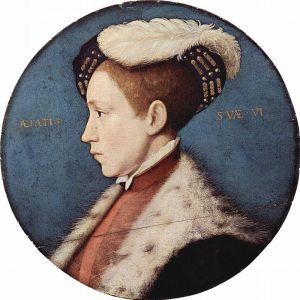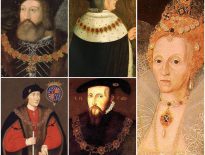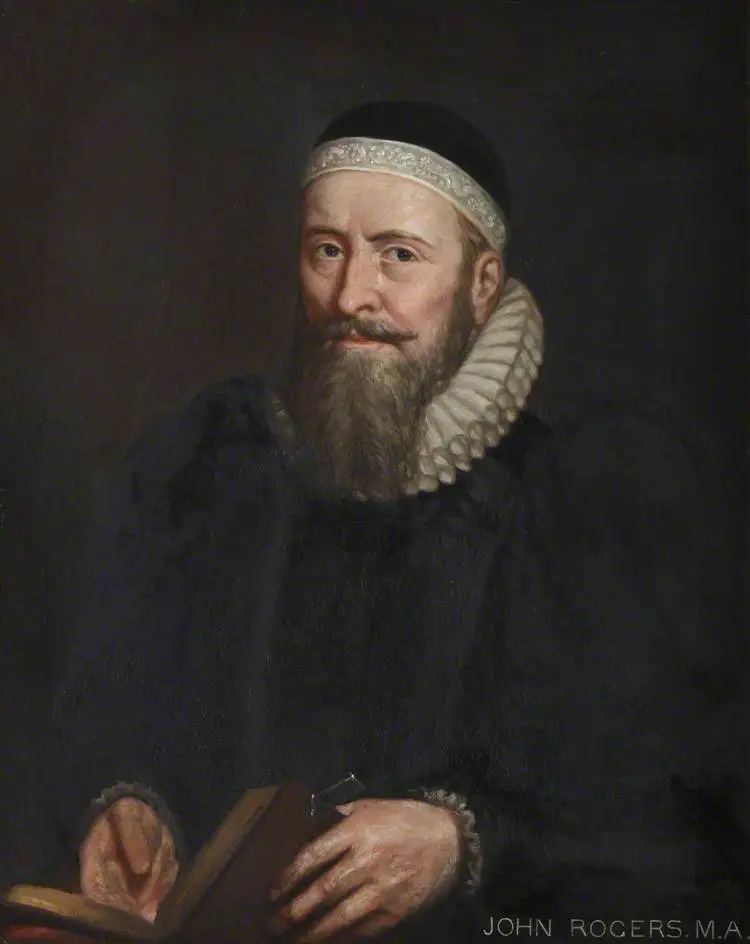 On this day in history, 31st January 1547, Thomas Wriothesley, Henry VIII's Lord Chancellor and one of the executors of his will, announced the death of Henry VIII to Parliament. The late king's nine-year-old son was proclaimed king, becoming King Edward VI.
On this day in history, 31st January 1547, Thomas Wriothesley, Henry VIII's Lord Chancellor and one of the executors of his will, announced the death of Henry VIII to Parliament. The late king's nine-year-old son was proclaimed king, becoming King Edward VI.
Chronicler and Windsor Herald Charles Wriothesley recorded:
"The 31 of Januarie my lord major [mayor] was sent for to the Perliament Chamber at Westminster, before the lordes of the Kinges Majesties Privie Counsell, and their was declared to them by my Lord Chauncelor and other the death of the Kinges Majestic Henrie the Eight, our Soveraigne Lord, which deceased to Almightie God on Fridaie last, being the 28th of Januarie, and straig[ht]ly charging them to keepe the Kinges peace and to loke to the savegarde of the Kinges Majesties Chambre of London, and so they departed.
Imediatlie the said lordes in their ordre, with Garter, the King of Haroldes [heralds], and other, in their cote armors, came out of the Perliament Chambre into the Palace of Westminster Hall with a trumpett, and their proclamation was made by the said Garter under the Kinges brode seale. Edward the Sixth, sonne and heire of our late Soveraigne Lord, to be King of this realme of England, France, and Ireland, Defendour of the Faith, &c., and of the churches of England and also of Ireland the Supream Head, ymediatlie under God, on earth.
Also that daie, at tenne of the clocke, the major and aldermen assembled in the Guildhall in their skarlett gownes, and Clarentius, one of the kinges of haroldes, with tow other haroldes and a trumpeter, and so rode from thence with my lord major and aldermen to Sainct Magnus Church corner, where proclamation was made by Clarentius, after the blowing of the trumpett tow tymes, under the Kinges broade seale, Edwarde the Sixth, with the death also of Henry the Eight, the Kinges Majestys father, and so from thence they rode in order to Leaden Hall [by] the Standard in Cheepe to the conduite in Fleet Streete, where also the said proclamation was made.
The same daie, in the afternoune, the Kinges Majestie [Edward VI] came to the Towre of London from Hareforde, and rode in Algate, and so along the wall by the Crossed Friars to the Towre Hill, and entred at the Redd Bulwarke, where Sir John Gage, Constable of the Towre, and the Lieutenant, receaved his Majestie on horsebacke, the Erle of Hertford ryding before the King, and Sir Anthonie Browne riding after the Kinge; and on the bridge next the Wardgate my Lord of Canterburie, my Lord Chauncelor, with other great Lordes of the Counsell, receaved his Majestie, and so brought him to his Chambre of Presence, where they were sworne to his Majestie.
Our late soveraigne lord King Henrie the Eight had declared by his will, under his great seale, his deerelie-beloved sonne and heire, our soveraigne lord, now Edward the Sixth, to succeede to his crowne emperiall; the Erle of Hartford, Sir Edward Seymor, to be Lord Protector and Governour of the Kinges Majestie and this realme of England, untill the Kinges Majestie came to his lawfull age of 18 yeares; and ordeyned also by his will for his Privie Counsell my Lord of Canterberie, my Lord Chauncelor, my Lord of Durham, with other, as by his Majesties will appeareth, to have the governance of this realme for the tyme."
Edward VI was now King of England, but it was to be Edward Seymour, the king's uncle, who would act as Lord Protector and Governor of the King's Majesty until Edward VI reached the age of 18. Although Charles Wriothesley states that this was what Henry VIII had declared in his will, this is not at all what the late king wanted. Henry VIII had appointed sixteen executors to carry out his will and these men were also to be members of his son's privy council. Henry wrote that he was "charging his said son to be ruled as regards marriage and all affairs by the aforesaid Councillors (names repeated) until he has completed his eighteenth year" and that "none of them shall do anything appointed by this Will alone, but only with the written consent of the majority". He meant for there to be a regency council of equals helping his son to govern the country. Henry VIII did not appoint a lord protector.
The king had died on 28th January 1547 and the fact that his death was not announced until 31st January suggests that it was kept secret while the executors and those who had served the king figured things out and organised themselves. What is interesting is that Edward Seymour, Earl of Hertford, wasn't even one of the executors!
You can read more about Henry VIII's will in the article 30 December 1546 – Henry VIII's Will.
Notes and Sources
- Wriothesley, Charles. A chronicle of England during the reigns of the Tudors, from A.D. 1485 to 1559, Volume 1, Printed for the Camden society, 1875-1877, p. 178-179.
- 'Henry VIII: December 1546, 26-31', in Letters and Papers, Foreign and Domestic, Henry VIII, Volume 21 Part 2, September 1546-January 1547, ed. James Gairdner and R H Brodie (London, 1910), pp. 313-348.
Picture: Edward VI, c. 1545, Workshop of Hans Holbein the Younger, Metropolitan Museum of Art.



Leave a Reply